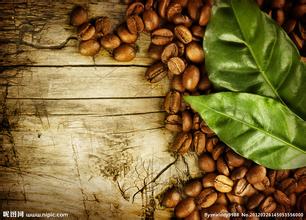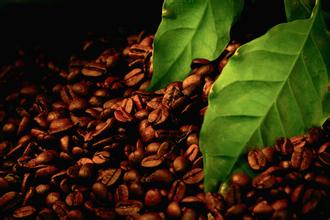Introduction to the taste characteristics of coffee flavor varieties in Incht Manor, Guatemala
From 1871 to 1944, the country began to devote itself to economic modernization. At the same time, the US-led United Fruit Company began buying large coffee and banana plantations in Guatemala and intervening in Guatemala politics. After the revolution of October 1944, the former dictator was overthrown, democracy and freedom of expression prevailed in Guatemala, and the first law in Guatemala's history to protect workers 'interests came into force. [7]Guatemala has embarked on a process of democratization. [1]
Between 1950 and 1954, when President Jacobo Árbenz was in power, agrarian reform was carried out, and large landowners, who accounted for 2 per cent of the country's population, occupied about 70 per cent of the country's arable land.Árbenz wrote a check for agrarian reform, promising to buy up land held by large landowners and redistribute it to small farmers.Árbenz won the election, and the land reform program was immediately implemented. For landowners who owned more than 223 acres, any unused land was expropriated. An average of 4300 acres were eventually expropriated from 1059 farms, and about 100,000 farmers were given title to the land. [7]
The United Fruit Company owns its largest estate in Guatemala, and it also owns
Guatemala
Guatemala
Inter-American Railway and the only seaport in Guatemala Driven by the United Fruit Company, the U.S. Foreign Office began a propaganda war against Guatemala, attacking the Árbenz regime in the name of anti-communism. The CIA, working with the opposition among Guatemala's military, began an operation called Operation PBSUCCESS.
Guatemala is a presidential republic in Central America, located in the southern part of the North American continent. It is bordered by the Pacific Ocean in the west, the Caribbean Sea in the east, Mexico in the north, Honduras and El Salvador in the southeast. Coffee was introduced to Guatemala in 1750 by Father Jesuit, and German colonists developed the coffee industry in the late 19th century.
Guatemala covers an area of approximately 108899 square kilometers. Land features can be divided into: volcanic plateau, lowland tropical forests, volcanic sandy coastal plains on the Pacific coast, and virgin land on the Caribbean coast. The Sierra Madre Mountains of Central America span east and west of Guatemala, covering an area of about 2/3 and containing 34 volcanoes. Rivers and lakes dot the landscape, while equatorial forests and plain jungles cover it. Today, much of the coffee industry is produced in the south of the country, where high-quality coffee beans are produced.
This is because Guatemala is located in the tropics, the northern and eastern coastal plains belong to tropical rain forest climate, the southern mountains belong to subtropical climate, a year is divided into two dry and wet seasons, May to October is wet season, November to April of the following year is dry season.
The central plateau is also the cultural center of Guatemala, where temperatures are mild all year round at 1300 to 1800 meters, with daily temperatures ranging from 18 to 28 ° C, and colder January and February at higher altitudes. Annual precipitation is 2000-3000 mm in the northeast and 500-1000 mm in the south, while ecological conditions in the south are very suitable for the growth of high-quality Arabica trees. What is more special is that there are several active volcanoes distributed in the southern mountainous areas. These active volcanoes still erupt irregularly. Although they bring turbulence to the local people's lives, their rich volcanic ash soil also benefits the local coffee industry and brings rich substances to coffee cultivation.
And Guatemala coffee beans mostly belong to the Bourbon species of Arabica, so Guatemala coffee growing areas are almost all in the southern mountain forest areas of the country.
In Guatemala, there are seven major coffee producing areas, each producing area produces coffee flavor is different, but in summary, Guatemala coffee presents mild and mellow overall texture, elegant aroma, and with similar acid pleasant acidity, as if to become the aristocrat of coffee, among which Antigua coffee (Antigua Classic) is deeply recommended by coffee gluttons around the world.

Important Notice :
前街咖啡 FrontStreet Coffee has moved to new addredd:
FrontStreet Coffee Address: 315,Donghua East Road,GuangZhou
Tel:020 38364473
- Prev

Introduction to the flavor of high-quality coffee beans in the coffee producing area of La Tisa Manor in Guatemala
The coffee beans in each producing area have their own characteristics, and they have won a lot of praise for Guatemala in the international community, especially the perfect coordination of the sour, sweet and mellow texture of Antigua; with a touch of smoke and a little more emphasis on its mystery, you will have a reason not to look for alternatives everywhere after tasting. Guatemalan coffee beans are mostly cultivated in high-altitude volcanic areas where the soil is the highest.
- Next

Description of Coffee Flavor of Berman Manor in Kenya introduction of Fine Coffee in Variety producing area
People in the coffee industry all think that Kenyan coffee is one of its favorite products because Kenyan coffee contains every feeling we want from a good cup of coffee. It has wonderful and satisfying aromas, well-balanced acidity, well-proportioned particles and excellent fruit flavors. The taste is so unique that there is almost no similar coffee. The characteristics of Kenyan coffee
Related
- Does Rose Summer choose Blue, Green or Red? Detailed explanation of Rose Summer Coffee plots and Classification in Panamanian Jade Manor
- What is the difference between the origin, producing area, processing plant, cooperative and manor of coffee beans?
- How fine does the espresso powder fit? how to grind the espresso?
- Sca coffee roasting degree color card coffee roasting degree 8 roasting color values what do you mean?
- The practice of lattes: how to make lattes at home
- Introduction to Indonesian Fine Coffee beans-- Java Coffee producing area of Indonesian Arabica Coffee
- How much will the flavor of light and medium roasted rose summer be expressed? What baking level is rose summer suitable for?
- Introduction to the characteristics of washing, sun-drying or wet-planing coffee commonly used in Mantenin, Indonesia
- Price characteristics of Arabica Coffee Bean Starbucks introduction to Manning Coffee Bean Taste producing area Variety Manor
- What is the authentic Yega flavor? What are the flavor characteristics of the really excellent Yejasuffi coffee beans?

